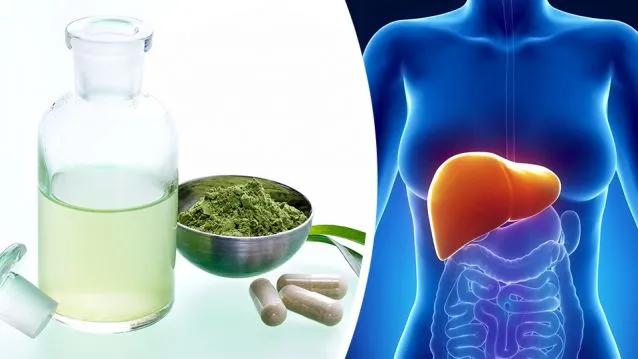Green tea has numerous benefits, but now science tells us that more may not necessarily be better. It turns out green tea extract, found in many over-the-counter weight-loss powders, pills and liquid supplements, has raised concerns about increased risk of liver damage. If you’re taking green tea extract, here’s what you need to know.
Green tea extract is not safe for weight loss
If you drink green tea you probably choose it for its refreshing taste. You might also choose it for its many health benefits. According to the University of Maryland, green tea:
- Reduces atherosclerosis and risk of heart disease
- Lowers blood pressure
- Reduces cholesterol levels
- Reduces inflammation
- Helps prevent diabetes
- Improves bone density
- Improves memory
- Helps prevent cancer
So, it’s likely for these reasons that you may have considered taking green tea extract (also called Camellia sinensis) as a health supplement. What’s more, some studies suggest that green tea extract has the ability to aid weight loss. In fact, many weight loss products list green tea extract as a key ingredient — herein lies the problem.
Green tea extract linked to liver damage
There have been ongoing reports of serious liver damage worldwide linked to green tea extract, including a recent report in Canada. Between 2006 and 2016, Health Canada received 11 reports of suspected liver damage linked to green tea extract, products reports Global News.
The World Health Organization Adverse Drug Reaction Database also reports 89 liver injuries worldwide from products containing the extract. Although, Health Canada says there’s not enough information within the reports for a proper evaluation.
Are your supplements giving you liver damage?
You often associate alcohol abuse or excessive amounts of certain medications with liver damage. But according to Consumer Reports, liver damage from supplement use is on the rise. And that includes supplements bought online or over-the-counter in drug and health food stores. In fact, liver injuries from supplements jumped from just seven percent in 2004 to 20 percent in 2014.
Liver damage is often linked to tenderness and pain in the abdomen that sometimes radiates to the shoulder. Liver injuries can heal without treatment. But sometimes surgery is needed to repair the liver or to remove part of it.
A study from the National Institute of Health published in the journal Hepatology reported 700 cases of liver damage during the study period. Of those cases, 130 were linked to dietary supplements. But that underestimates the extent of the problem, suggests Consumer Report, since the network tracks only severe cases of liver damage caused by supplements. Some cases go unreported.
According to the study, bodybuilding and weight-loss supplements were responsible for about half of the cases of liver damage. The problem is most supplements contain multiple ingredients, so the researchers weren’t always able to pinpoint the harmful substance.
Green tea extract poses one of the greater risks
What particularly surprised researchers was the danger posed by the green tea extract often added to weight loss supplements. In 2015, Americans spent $140 million on green tea extracts. Ten percent of people who suffer acute liver failure from green tea extract may die as a result, the researchers said.
“As surprising as it may seem, manufacturers are not required to prove to the Food and Drug Administration that their products are safe,” says Chuck Bell, programs director for Consumers Union, the policy and mobilization arm of Consumer Reports. “Or that they’re effective for their advertised use before they are sold.”
According to Consumer Reports, green tea extract used in weight loss supplements may cause:
- Dizziness
- Ringing in the ears
- Reduced absorption of iron
- Anemia
- Glaucoma
- Elevated blood pressure and heart rate
- Liver damage
- Death
Green tea extract vs. green tea
Supplements are not the tea you sip, made from brewing leaves in hot water. Supplements or pills contain concentrated amounts of particular compounds found in green tea. Loose leaf green tea is loaded with catechins, an antioxidant compound that in the proper dose provides vast benefits including lowering your risk of developing cholesterol, heart disease and cancer. But when taken in highly concentrated doses, like those found in supplements, it can cause herbal hepatotoxicity.
But does that mean you should instead drink mega cups of green tea daily? Absolutely not. You can have too much of a good thing. In 2015, Mail Online reported a story about a 16-year-old girl who drank three cups of Chinese herbal green tea a day. She did so for three months as part of a weight loss plan. After going to the hospital with what she thought was a severe UTI, she found out that what she actually had was a type of herb-induced hepatitis. Herbal hepatotoxicity, chemically induced liver damage, happens when you take too much of an herbal supplement or even down too many cups of herbal a day.
Weight-loss supplements are everywhere these days making unrealistic promises. So, before buying into the hype and potentially placing your health at risk, read the label. Make sure it doesn’t contain green tea extract!
— Katherine Marko

